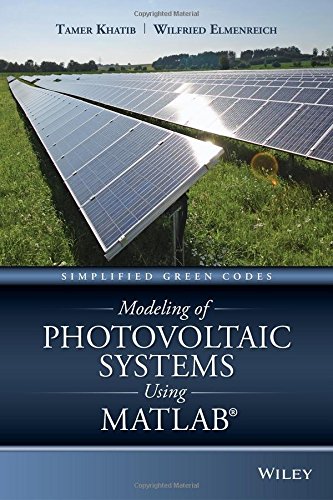

Most ebook files are in PDF format, so you can easily read them using various software such as Foxit Reader or directly on the Google Chrome browser.
Some ebook files are released by publishers in other formats such as .awz, .mobi, .epub, .fb2, etc. You may need to install specific software to read these formats on mobile/PC, such as Calibre.
Please read the tutorial at this link. https://ebooknice.com/page/post?id=faq
We offer FREE conversion to the popular formats you request; however, this may take some time. Therefore, right after payment, please email us, and we will try to provide the service as quickly as possible.
For some exceptional file formats or broken links (if any), please refrain from opening any disputes. Instead, email us first, and we will try to assist within a maximum of 6 hours.
EbookNice Team

Status:
Available4.7
8 reviewsProvides simplified MATLAB codes for analysis of photovoltaic systems, describes the model of the whole photovoltaic power system, and shows readers how to build these models line by line.
This book presents simplified coded models for photovoltaic (PV) based systems using MATLAB to help readers understand the dynamic behavior of these systems. Through the use of MATLAB, the reader has the ability to modify system configuration, parameters and optimization criteria. Topics covered include energy sources, storage, and power electronic devices. This book contains six chapters that cover systems’ components from the solar source to the end-user. Chapter 1 discusses modelling of the solar source, and Chapter 2 discusses modelling of the photovoltaic source. Chapter 3 focuses on modeling of PV systems’ power electronic features and auxiliary power sources. Modeling of PV systems’ energy flow is examined in Chapter 4, while Chapter 5 discusses PV systems in electrical power systems. Chapter 6 presents an application of PV system models in systems’ size optimization. Common control methodologies applied to these systems are also modeled.
Modeling of Photovoltaic Systems Using MATLAB: Simplified Green Codes is a reference forresearchers, students, and engineers who work in the field of renewable energy, and specifically in photovoltaic systems.